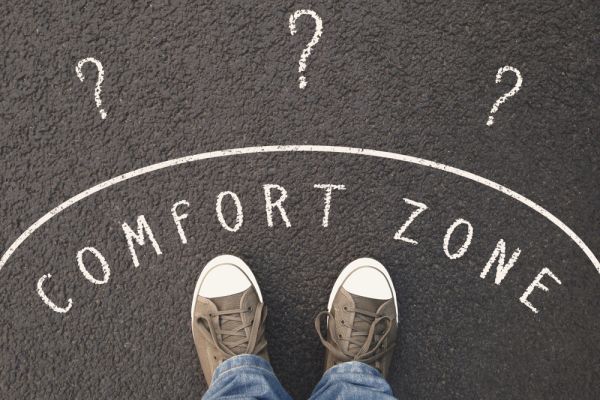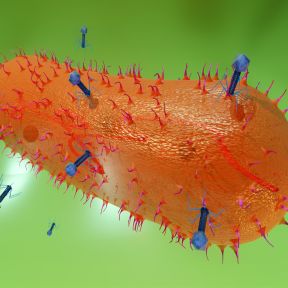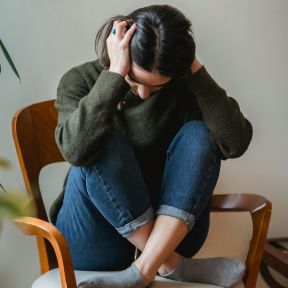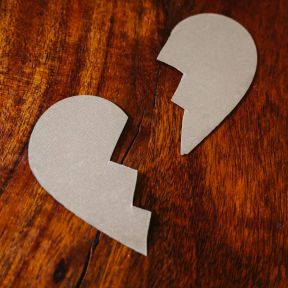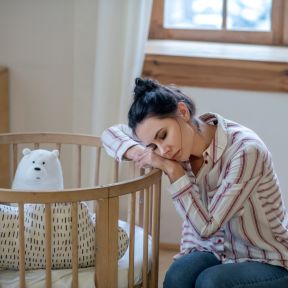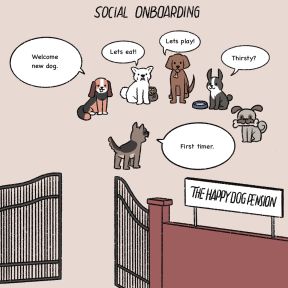Signs of Anxiety
Everybody gets anxious sometimes, whether in response to something reality-based—such as the possibility of getting seriously ill with COVID-19—or something wholly imagined, such as the possibility of financial ruin when well off. But the reactions tend to be short-lived. Anxiety is meant to keep you safe, and the system is rigged to err on the side of survival. Anxiety is regarded as a disorder when the worry is more intense than a situation warrants, it persists for weeks or months, the thoughts of worry are difficult to control, and they interfere with everyday functioning. In generalized anxiety disorder, worry can focus on any of the major domains of life circumstances—health, work, or family—or minor matters.
Anxiety has two basic components: There is a cognitive load of worry, or the apprehensive expectation of some bad outcome. And there are physical symptoms, notably restlessness and edginess, muscle tension, sleep disturbance, and difficulty concentrating. Like depression, anxiety can make its presence felt in many systems of the body—disrupting digestion, speeding heart rate, setting off ringing in the ears. More women than men experience anxiety, by a factor of two to one. Over the course of a lifetime, Americans have a 10 percent chance of developing anxiety. But rates of the disorder have been rising rapidly over the past decade. The median age of onset is 31. Studies show that in Europe and in China, the chance of developing generalized anxiety is less than 6 percent.
On This Page
- Is anxiety in the mind or the body?
- At what age are people most likely to get anxiety?
- What are the major signs of anxiety?
- What does it mean to have clinical anxiety?
- Why do I feel like I might be having a heart attack?
- Why do I feel like something terrible is about to happen?
- Why does my body shake?
- Why can’t I concentrate on anything?
- Why do I sometimes feel like I can't breathe?
- Is anxiety the same thing as fear?
- What is the course of clinical anxiety?
- Why am I not interested in sex?
- Do children get anxiety?
Anxiety shows itself both in the mind and the body. As a threat is perceived—whether it is a reality-based one such as the possibility of being fired for an offense or an imagined one—the brain’s amygdala signals the hypothalamus, a central command center, which broadcasts the signal through the autonomic nervous system and sets off a cascade of hormones, including adrenaline. It in turn stimulates the multiple physical symptoms of anxiety. Your heart beats faster and your pulse rate increases. So does your blood pressure. Breathing accelerates; you may feel short of breath. Other symptoms include:
• dizziness
• muscle tension
• trembling or shaking
• dry mouth
• sweating
• stomachache
• headache.
Studies show that the bodily symptoms often lead to misdiagnosis in which the symptoms are ascribed to physical causes, and the true source of the problem continues undiscovered.
Although children can develop anxiety, the average age of onset of any anxiety disorder is 21.3 years. Nevertheless, the age of onset is decreasing, and the National Institutes of Health reports that 32 percent of adolescents had one form or another of an anxiety disorder: generalized anxiety, phobia, panic disorder, or social anxiety disorder. Observers cite new cultural pressures linking youth and anxiety. Some anxiety disorders show up sooner than others: Separation anxiety, specific phobias, and social anxiety disorder most often begin before age 15. General anxiety disorder and other anxiety disorders begin, on average, between 21.1 and 34.9 years.
Generalized anxiety disorder declares itself in both the mind and the body. People with anxiety experience excessive worry more often than not for at least six months and are unable to control the worry. They also experience a number of physical symptoms. The presence of at least three physical signs along with excessive worry is the criterion for clinical diagnosis.
• Restlessness, or feeling on edge
• Being easily fatigued
• Difficulty concentrating
• Irritability
• Muscle tension
• Sleep disturbance
Phobia is a common anxiety disorder in which fear is focused on a very specific object or situation and anxiety is experienced only in that situation or in anticipation of exposure to it.
Occasional bouts of anxiety are a normal part of life. And a moderate amount of anxiety in some situations—say, before taking a test, giving a talk, engaging in a new activity, or doing something risky—is good. It heightens alertness and can boost performance. But when anxiety is intense or overwhelming, persistent, beyond unpleasant, interferes with everyday functioning or important activities, and is out of proportion to the actual dangers faced then it is considered a disorder, or clinical condition.
In anxiety, and especially during a panic attack, the heart, prompted by hormones that are part of the stress response, speeds up and intensifies its work in an effort to quickly supply the muscles with oxygen, in the possibility that fight or flight might be called for. You feel palpitations, a sense that your heart is pounding or racing or even beating irregularly. Breathing quickens, too, and can create the feeling of not getting enough oxygen. These automatic reactions create the sense of having a heart attack. In physically healthy people, the symptoms are harmless, although the fear of having a heart attack tends to trigger even more anxiety. However, after a quick crescendo, the physical sensations generally subside.
A sense of impending doom is a common accompaniment to bouts of anxiety and especially panic attacks. Not only may it seemingly strike out of the blue, it also tends to exacerbate the anxiety. The feeling that something bad is about to happen is triggered by the body’s response when the mind senses a threat. Hormones released as part of the body’s stress response put the brain on high alert, scanning relentlessly for danger, and a strong stress response can lead to the feeling that catastrophe awaits. Measures to tamp down the stress response, such as deep-breathing for a few minutes, can dampen the sense of impending doom.
Anxiety plays out in the body as well as the mind. It puts much of the nervous system on high alert for danger and ready to fight or flee. The aroused nervous system is poised to expend energy, and shaking is a manifestation of that tension. The nervous tension may reveal itself in trembling hands or even a whole-body tremor. Shaky hands and body tremors can come and go in waves or they can be relatively constant. Unpleasant as they are, they carry no danger and eventually pass. Taking steps to reduce anxiety—deep-breathing, going for a walk or run—can reduce the level of anxiety and quell the shakiness.,
The worry of anxiety disrupts other cognitive functions, and concentration and memory are both casualties. Anxiety undermines working memory, so that it’s hard to hold onto incoming information for long; you feel like you can’t focus long enough to get anything done and tasks seem especially difficult. Brain fog. In addition, the normal bias of the brain to register negative events is exaggerated in anxiety, and the brain is preoccupied with scanning for danger. Compounding the problem, anxiety disrupts sleep, and lack of sleep erodes working memory and the ability to focus even further,
Breathlessness is a common symptom of anxiety, and especially in its most extreme expression, panic. The feeling of being short of breath is caused directly by hormones released by the body any time the mind senses or chews over a threat—whatever it is that fills you with worry. Linked to the deep-seated stress response that automatically prepares the body for fight or flight, breathlessness is the sensation you get as the body speeds up heart rate and breathing in an attempt to speed extra oxygen to muscles.
The experience of breathlessness, especially in combination with awareness of a pounding heart, can set off a vicious cycle, itself exacerbating anxiety, leading to even more breathlessness. Breathlessness may last 10 minutes or more, but it eventually dissipates. Directly countering breathlessness with a minute or two of deep-breathing exercises is one of the most effective anti-anxiety measures—it not only sends oxygen to your overworking brain, it stimulates the parasympathetic nerve, the calming branch of the autonomic nervous system..
Fear is a response to immediate danger. it is usually highly focused, triggered by a very specific object or circumstance, and meant to mobilize fast action. There may not be any external trigger for anxiety; it is a response to real or imagined future threat, and it is typically more diffuse, setting in motion the need for constant vigilance in anticipation of some possible undesirable outcome. It usually stimulates avoidance behavior.
What makes a person anxious is highly subjective and idiosyncratic. Fear, on the other hand, has a social side. Fear stimulates a set of distinctive and universally understood changes in facial expression—widened pupils, pale skin —that are thought to silently warn others that a danger is present. Anxiety shares some of the physiological signs of fear—heightened alertness and fast heart rate, similarly, set off by the hormones related to the stress response—but it singularly places a heavy load of worry on the brain in the form of repeated thoughts about what might possibly go wrong in the future.
Generalized anxiety disorder tends to be a chronic condition. The symptoms of anxiety occur when the brain’s amygdala identifies a threat and sends out a signal for the body and brain to prepare for danger. The brain goes into overdrive, searching for bad things. The body alerts organ systems to prepare to fight or flee.
Studies show that some people are born with a low threshold of reactivity of the amygdala, so that it’s constantly turning on the alarm system. In others, adverse experiences during childhood permanently reset the response level of the amygdala in an effort to ward off the possibility of being harmed in the future. Both situations set up chronic vulnerability to anxiety. The sources of anxiety may change over the course of a lifetimes, but the tendency to react to difficult situations with anxiety endures.
Anxiety is guaranteed buzzkill. Anxiety is a response originally designed to promote survival in a world of danger. The brain center that regulates such basic behaviors as eating and sex (the hypothalamus) shuts down activity in any system not related to immediate survival. One result is lack of libido, or low sex drive. In addition, the on-edge feeling that anxiety stirs prevents the relaxation needed to sense as pleasurable the physical stimulation that leads to orgasm. Particularly for women, orgasm requires the ability to let go; anxiety does exactly the opposite. The sex drive typically returns when the brain senses that the environment is safe.
Studies show that just over 7 percent of children aged 3 to 17 have a current anxiety problem. That’s approximately 4.4 million children in the U.S.. More and more children are being diagnosed with anxiety—incidence rose from 5.5 percent to 6.4 percent between 2007and 2012 alone.
Experts point to several factors; prominent among them is the way that parents often try to shield their kids from feeling bad over the normal lumps and bumps of life. Noah is disappointed because he didn’t get chosen for the soccer team. Instead of helping the child understand which athletic skills might need more work, and helping him process the dejection, a parent protests to the school or coach. The net effect is that the child fails to develop coping skills for minor disappointments, and the lack of coping skills turns even minor challenges into significant sources of anxiety. In that way, the anxieties of the adults create anxious children.


